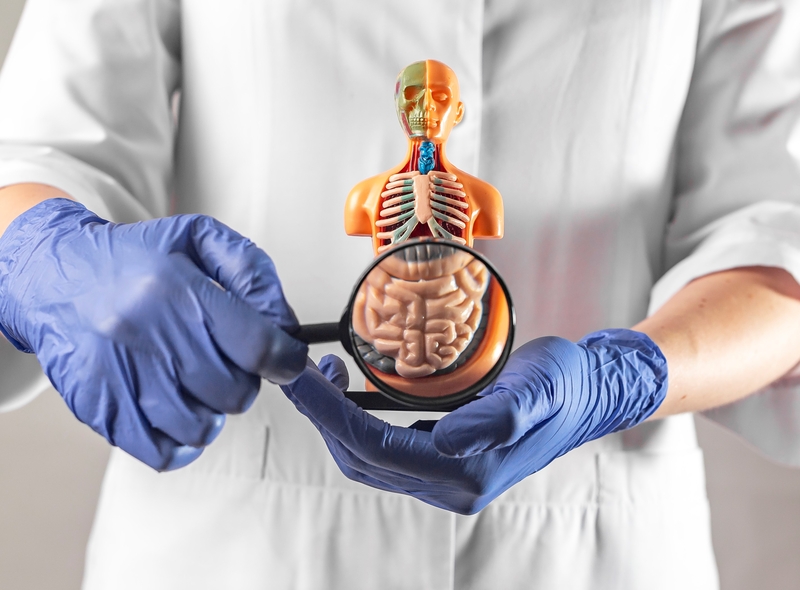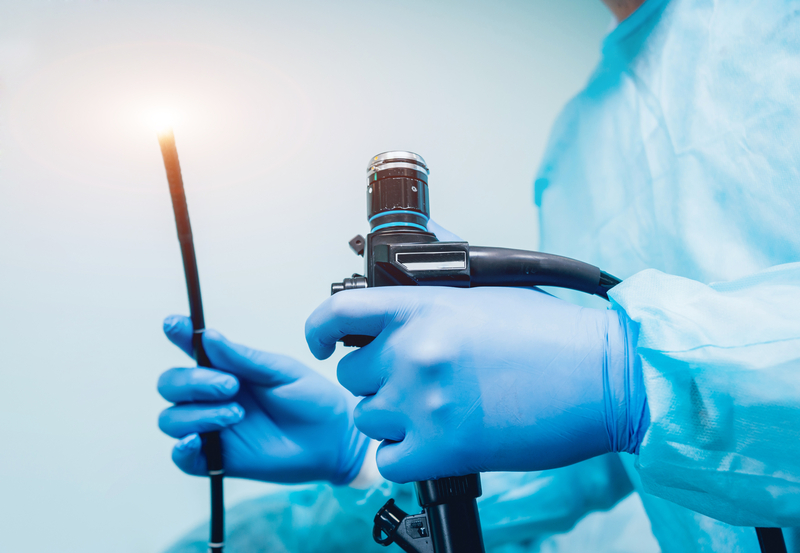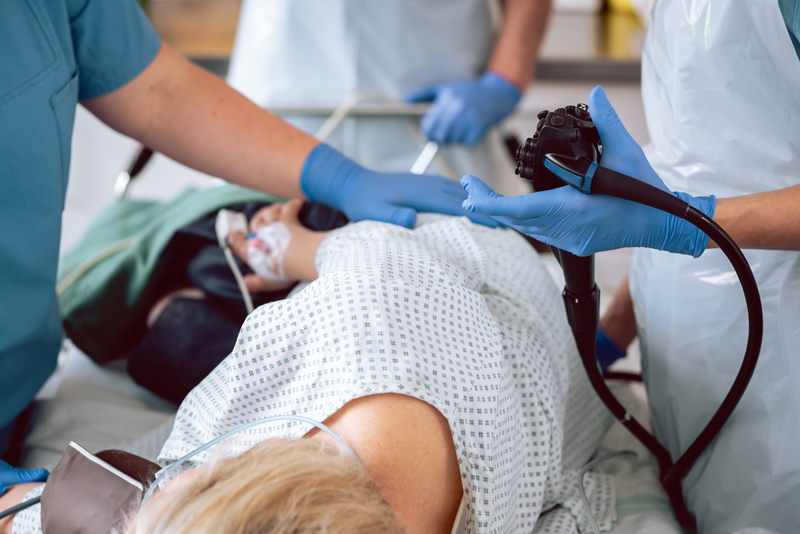gastroenterologie - procedures and examinations
GASTROENTEROLOGY: COLON EXAMINATION
Endoscopic examination of the rectum and colon (examination with a flexible probe with a diameter of 12 mm and a length of 160 cm).
Duration 15-30 minutes depending on the shape and length of the bowel. The purpose of the examination is to detect and evaluate possible disease process in the examined area of the colon.
Before the examination
Examinations are routinely performed in our clinic under general anaesthesia, so it is advisable to undergo an anaesthetic examination, including blood draws. Necessary medications can be taken at home the morning before the examination (e.g. medication for high blood pressure) and washed down with a small amount of clear liquid (possibly by arrangement with the anaesthesiologist).
The day before the actual examination, it is necessary to prepare the bowel with a special solution for which you will receive a prescription with instructions from the referring doctor. Incomplete preparation usually leads to an inadequate overview of the bowel with subsequent re-preparation and examination.
Just before the procedure, the patient will be seen by an anaesthetist and an anaesthetic nurse who will provide general anaesthesia to eliminate discomfort during the examination.
Examination
After induction of anaesthesia, the doctor will insert a device (moistened with numbing gel) into the rectum and then examine the entire colon. The examination is carried out in the position on the left side.
After the examination
A treatment regimen is recommended, precautions are taken after the medical procedure and any further follow-up examinations are scheduled.
After an uncomplicated course, the patient will be monitored at the bedside for approximately 2 hours after the examination.
After that, the patient can leave the hospital, preferably accompanied by a close person. Before being discharged home, the patient is informed by the doctor about the findings in the colon
After the procedure with intravenous administration of sedative drugs and painkillers (analgosedation, general anaesthesia), you must not drive motor vehicles, ride public transport, drink alcohol, perform actions requiring attention, do not make important and legal decisions, do not sign legal documents.
Patient instructions before colonoscopy
Characteristics
A colonoscopy is an examination of the lower part of the digestive tube (colon).
This examination is recommended based on your complaints or as a preventive measure for early detection of possible disease changes.
The actual examination is performed with a flexible 15 mm diameter probe inserted into the rectum and then through the entire colon to the appendix.
The examining physician watches an image transmitted by optical fibre and video string on a TV screen. In terms of quality, timeliness of diagnosis and the possibility of immediate gentle intervention (sampling, removal of the polyp), this is an examination that is irreplaceable by any other method.
The examination time is approx. 30 min.
Progress
Before each colonoscopic examination, it is necessary to undergo an anaesthetic examination including blood draws.
The day before the actual examination, it is necessary to prepare the bowel with a special solution for which you will receive a prescription with instructions from the referring physician.
Incomplete preparation usually leads to an inadequate bowel survey followed by a new preparation and examination. Necessary medication can be ingested at home the morning before the examination and washed down with a small amount of clear liquid (possibly by arrangement with the anaesthetist).
Inform the examining physician of any serious illnesses or allergies. Removable dentures must be removed.
Just before the procedure, you will be seen by an anaesthesiologist and an anaesthetic nurse who will provide general anaesthesia to eliminate any discomfort during the examination.
Once you are anaesthetised, the doctor will insert the machine into your rectum and then examine your entire colon.
If the examination is uncomplicated, you will be monitored on bed rest for 2-3 hours. Afterwards, you may be taken home. On the day of the examination, you are not allowed to drive motor vehicles or operate equipment requiring special attention. The presence of another person (supervisor) at home is highly recommended.
Possible interventions and complications during the examination
Colonoscopic findings may require actual biopsy sampling or polyp removal. Hospitalization for 24 hours may be expected after some of these procedures.
During colonoscopy, as with other instrumental examinations, complications (bowel perforation, bleeding) may occur - usually with severe findings, followed by urgent surgery and longer hospitalisation.
If unclear, contact the examining physician.




